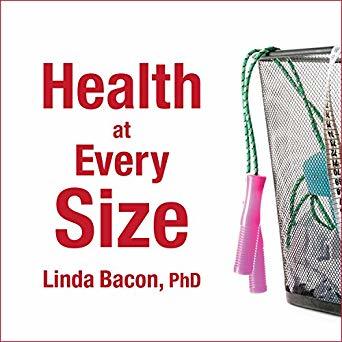What do you think?
Rate this book


Fat isn't the problem. Dieting is the problem. A society that rejects anyone whose body shape or size doesn’t match an impossible ideal is the problem. A medical establishment that equates "thin" with "healthy" is the problem. Health at Every Size: The Surprising Truth About Your Weight by Linda Bacon, PhD, presents a well-researched, healthy-living manual that debunks the weight myths and translates the latest science into practical advice to help readers forever end their battle with weight.
Audible Audio
First published October 11, 2008